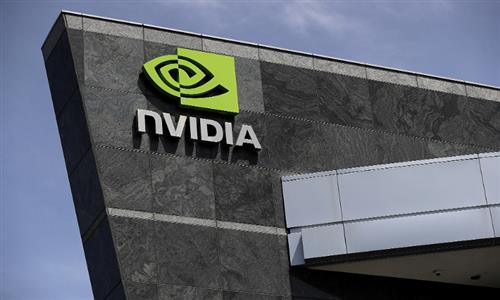
Illustration: Chen Xia/Global Times
Although calls for a chip manufacturing technology upgrading at SK Hynix's China plant have been heard for years, the process is constantly being interrupted by US restrictions on tech exports to China. SK Hynix has delayed that upgrading for too long. Now, changes should be made.A recent media report, citing industry insiders, said that SK Hynix plans to upgrade memory chip production technology at its factory in Wuxi, East China's Jiangsu Province. Although SK Hynix reportedly stated that it is "unable to confirm a specific operational plan of its plant," it is our hope that the news is true, because only through technology upgrading can South Korean chipmakers strengthen their presence in China as competition intensifies.
As early as 2021, there were media reports saying that SK Hynix's production plans called for the company to upgrade its production facility in Wuxi, with some of the latest extreme ultraviolet lithography chipmaking machines made by Dutch firm ASML. But, regrettably, the plan was in jeopardy, because US officials did not want advanced equipment used in the process to enter China.
In the following years, there were constant reports about SK Hynix rowing back on plans to upgrade technology at that plant.
However, the semiconductor industry is one where the technology landscape is evolving rapidly. As a result, technical advances at the front end of chip manufacturing are accelerating.
In a world of increasing competition, everyone seeks to maintain competitiveness in the semiconductor industry at all costs. It's hard to imagine what would occur if a chipmaker delayed technology upgrading for several years due to political interference by the US.
SK Hynix reportedly makes about 48 percent of its dynamic random access memory (DRAM) chips in Wuxi. According to a Business Korea report, SK Hynix's DRAM production subsidiary in China suffered a big loss in 2022.
In order to keep up with the development of the Chinese chip industry and maintain its market share in China, SK Hynix does not have much time to wait. SK Hynix, along with other South Korean chip manufacturers, should upgrade the technology at their Chinese plants as soon as possible.
China welcomes foreign chip manufacturers to invest and do business in China. Some South Korean companies, including SK Hynix and Samsung, have made significant investments in China, creating jobs for young people while building competitive industry clusters.
Economic complementarity and mutually beneficial cooperation are the keys to the China-South Korea semiconductor supply chain. Hopefully, South Korean companies can make technological upgrades and push bilateral cooperation to new heights.
South Korean chip giants face intense competition from Chinese competitors. Despite stringent sanctions by the US government, China's chip manufacturers have shown strong resilience and innovation.
For instance, China's efforts to ramp up semiconductor innovation seem to be bearing fruit as Tsinghua University reportedly developed the world's first fully system-integrated memristor computing-in-memory chip that supports efficient on-chip learning.
Amid the rise of chip technology in China, some Western chipmakers were forced to design and produce chips specifically for the Chinese market. However, there are reports that Chinese customers are reluctant to purchase the "downgraded" versions of these chips.
This should be a lesson. Under pressure from Washington's restrictions on tech exports to China, foreign chipmakers need to find a way to make technological upgrades in China. In this regard, China and foreign chipmakers share common interests.
Regardless of whether the reports saying SK Hynix plans to upgrade its chip production facilities are true or not, it's a good sign that the South Korean chip giant is making attempts to solve the dilemma caused by Washington's restrictions.
The author is a reporter with the Global Times. bizopinion@globaltimes.com.cn



